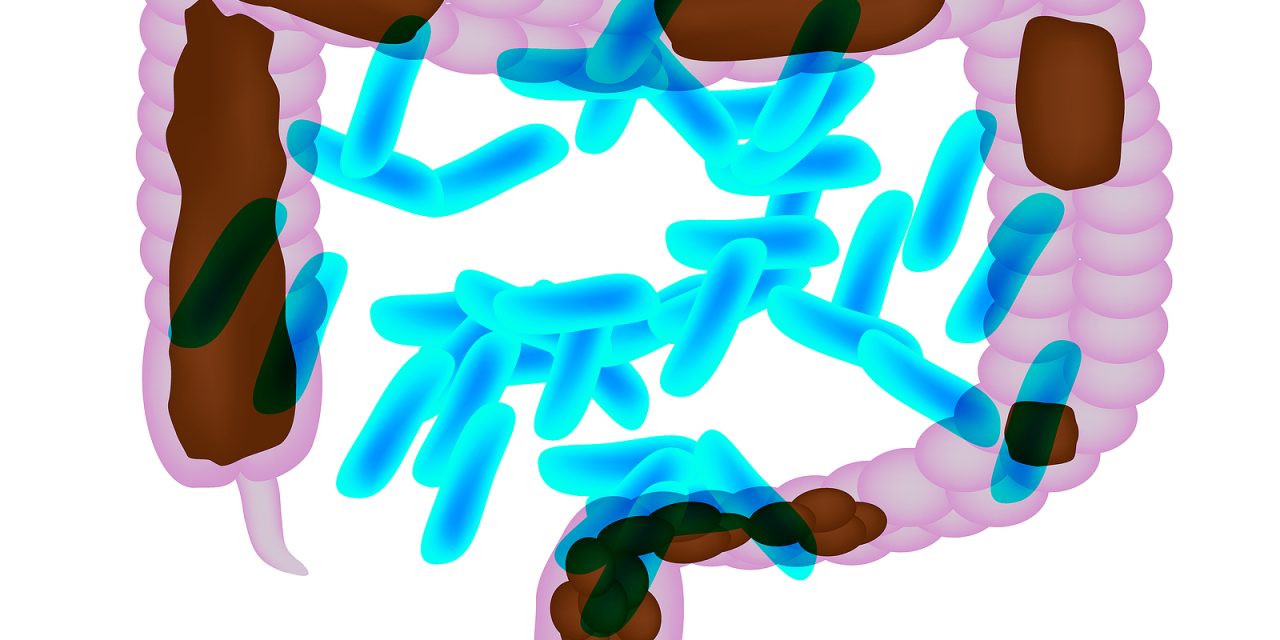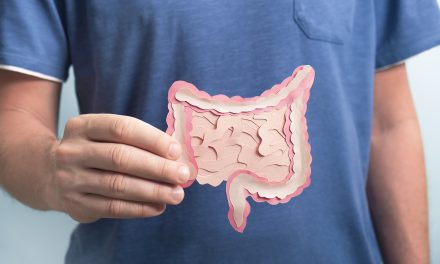Understanding the relationship between probiotics and digestive health can be crucial for individuals experiencing constipation. Constipation affects a large portion of the population at some point, leading to discomfort and decreased quality of life. With the gut microbiome playing a vital role in maintaining digestive functions, probiotics have gained attention for their potential to alleviate constipation. These beneficial bacteria may help balance intestinal flora and enhance bowel regularity, offering a natural option for managing symptoms.

The effectiveness of probiotics for constipation varies depending on the specific strains and doses used. Some strains, like Bifidobacterium and Lactobacillus, have been researched more extensively and are commonly recommended for their positive impact on bowel habits. However, it is important to consider that probiotics are not a one-size-fits-all solution. The type and severity of constipation, individual health conditions, and the presence of other gastrointestinal issues like Irritable Bowel Syndrome (IBS) can affect how one responds to probiotic supplementation.
Key Takeaways
- Probiotics can help balance gut flora and are being researched for their potential to improve bowel regularity.
- Specific strains like Bifidobacterium and Lactobacillus have been identified as particularly beneficial for constipation relief.
- Personal health conditions and the nature of constipation symptoms influence the effectiveness of probiotics.
Understanding Constipation
Constipation is a common gastrointestinal condition characterized by infrequent bowel movement, typically fewer than three per week. It often involves difficulty in passing stool, hard or lumpy stools, and a sensation of incomplete evacuation. Factors contributing to constipation include a low-fiber diet, inadequate hydration, physical inactivity, and certain medications.
Key indicators of good gut health are regular, consistent bowel movements and a soft stool consistency. When the digestive system is functioning optimally, waste moves through the colon with ease, but disruptions may lead to constipation. Incorporating sufficient fiber in the diet, such as from fruits, vegetables, and whole grains, is crucial for bowel regularity. Fiber aids in adding bulk and softness to the stool, making it easier to pass.
The individual’s daily water intake also plays a vital role in preventing constipation. Proper hydration ensures that the fiber can perform effectively, and the digestive tract remains well-lubricated to facilitate smooth bowel movements.
In summary, constipation occurs when bowel movements become less frequent and stools become difficult to pass. It can be addressed by focusing on dietary and lifestyle changes that promote gut health, such as increasing fiber intake and ensuring adequate hydration.
Probiotics and Gut Health
Probiotics, often referred to as beneficial bacteria, play a crucial role in maintaining a healthy gut microbiome, supporting efficient digestion and overall gut health.
Role of Probiotics in Digestive Health
Probiotics are live microorganisms that, when administered in adequate amounts, confer a health benefit on the host. In digestive health, they are essential because they help balance the gut microbiome. The gut microbiome consists of trillions of beneficial and potentially harmful bacteria. A healthy balance of these bacteria is critical for digestion, nutrient absorption, and immune function.
Several studies, such as one highlighted by Healthline, have demonstrated that probiotics can enhance the gut microbiome. By improving the microbial balance in the gut, probiotics help regulate bowel movements and may alleviate constipation.
Bifidobacterium and Lactobacillus are two common probiotic strains known to promote gut health. They can be found in fermented foods, dietary supplements, and yogurts. For instance, Bifidobacterium lactis has been cited by Medical News Today as one of the strains that might help with constipation.
Bacteria Strains and Their Functions
- Bifidobacterium: This group of bacteria is known for breaking down lactose and complex carbohydrates. Some strains, like Bifidobacterium infantis and Bifidobacterium lactis, may improve bowel frequency and soften stools to aid those with constipation.
- Lactobacillus: Another key player, Lactobacillus strains like Lactobacillus acidophilus, are known to produce lactic acid, which helps inhibit the growth of harmful bacteria. According to Bustle, looking for these specific strains can be beneficial in alleviating constipation.
It is also worth noting that certain probiotic strains can have targeted benefits. For example, research featured in Harvard Health suggests that probiotics containing Bifidobacteria may reduce gut transit time and increase stool frequency in people with constipation.
Probiotic supplements can vary in bacterial strain and potency, influencing their effectiveness for different individuals. Individuals need to choose strains that have been demonstrated to support gut health and to consider the proper dosage as supported by clinical evidence.
Types of Probiotics for Constipation

When addressing constipation, specific probiotic strains have been identified as potentially beneficial. These strains fall mainly into two categories, Bifidobacterium and Lactobacillus, with some additional strains also contributing to gut health.
Bifidobacterium
Bifidobacterium strains are significant for intestinal health and may alleviate constipation. Notably, Bifidobacterium lactis is linked to improving bowel regularity and softening stools. In particular, Bifidobacterium longum has been shown to balance gut microbiota and enhance digestive health.
Lactobacillus
The Lactobacillus genus is another group of bacteria beneficial for digestive health. Strains like Lactobacillus plantarum can modulate the gut environment and help maintain proper bowel movement patterns. Such strains often exist in fermented foods but can also be taken as supplements to aid in relieving constipation.
Other Beneficial Strains
Beyond the more common bifidobacteria and lactobacilli, some other strains like Saccharomyces boulardii, a type of probiotic yeast, have demonstrated effectiveness in managing digestive disturbances, including constipation. These alternative probiotic strains can complement bifidobacteria and lactobacilli or be used when more common strains are ineffective.
Probiotic Foods vs. Supplements

When considering options for alleviating constipation, understanding the differences between probiotic-rich foods and supplements can guide individuals toward an informed choice. Both dietary choices and supplements can contribute to gut health, but they do so in different ways.
Fermented Foods
Fermented foods like yogurt, kimchi, kefir, and sauerkraut are natural sources of probiotics. These foods undergo a fermentation process that encourages the growth of beneficial bacteria. Yogurt is perhaps the most widely-consumed fermented food known for its probiotics that can aid digestion and may be helpful in preventing constipation. Kimchi and kefir are also praised for their probiotic content, although the specific strains of bacteria can differ from those in yogurt.
- Yogurt: Contains strains such as Lactobacillus and can be consumed daily.
- Sauerkraut: Offers a variety of bacteria due to the diversity of microorganisms present during fermentation.
Consuming these foods as part of a regular diet introduces probiotics directly through food, which some argue can offer more natural benefits due to the presence of other nutrients that aid in their absorption and effectiveness.
Supplement Forms
Probiotic supplements, usually available in capsules or powders, provide a controlled dosage of specific probiotic strains. These supplements can target particular health issues, such as constipation, and are beneficial for those who do not consume enough probiotic-rich foods. Supplements can deliver a high concentration of probiotics, sometimes offering unique strains unavailable in food. For instance, Bifidobacterium is a common probiotic strain found in supplements that may help digestion and improve bowel movement frequency.
- Capsules: Easy to consume with a measured dose of probiotics.
- Powders: Can be mixed with liquids or foods; useful for those who have difficulty swallowing pills.
While both food sources and supplements can be effective, choosing between fermented foods or supplements may depend on personal dietary habits, specific strains required, and convenience.
Impact of Diet on Constipation

Constipation can often be attributed to one’s diet and daily habits. Ensuring the right intake of specific dietary components and engaging in regular physical activities are critical measures to prevent and relieve this common ailment.
Dietary Fiber
Dietary fiber is essential for bowel health. A fiber-rich diet increases stool bulk and accelerates its passage through the colon. There are two types of fiber:
- Soluble fiber: Dissolves in water to form a gel-like substance, helping stools pass more easily. Foods high in soluble fiber include oats, peas, beans, apples, and citrus fruits.
- Insoluble fiber: Adds bulk to the stool and tends to speed its passage through the gut. Good sources are whole grains, wheat bran, and vegetables.
It’s recommended that adults consume 25 to 30 grams of fiber per day. However, increasing fiber intake should be done gradually to avoid bloating and gas.
Hydration and Physical Activity
Hydration is another cornerstone of a healthy digestive system. An individual should drink plenty of fluids to help soften the stool. Water is the best choice, but other liquids such as herbal teas can also contribute to daily intake.
On the other hand, physical activity stimulates the natural contraction of intestinal muscles, aiding the movement of stools through the digestive system. Regular exercise, such as walking, swimming, or yoga, can significantly enhance bowel function. It’s suggested that adults aim for at least 150 minutes of moderate-intensity activity each week.
Choosing the Right Probiotic

When selecting a probiotic for constipation relief, it’s important to focus on the quality and dosage of the product. The right probiotic should have a high colony-forming unit (CFU) count and specific strains known to offer health benefits for digestive issues.
Evaluating Probiotic Quality
Strain Specificity: Always look for probiotics that list the specific strains used. Certain strains are more effective for treating constipation, including Bifidobacterium lactis and Lactobacillus acidophilus.
Colony-Forming Units (CFUs): A higher CFU count indicates a more potent probiotic. Quality products typically range from 1 billion to 100 billion CFUs per dose.
Certifications: Seek out probiotics that have undergone third-party testing or have certifications to ensure they meet high standards of purity and potency.
Storage Requirements: Verify storage information to maintain the probiotic’s efficacy. Some require refrigeration, while others are shelf-stable.
Recommended Dosage
Daily CFU Intake: Effective probiotic doses can vary widely; however, a daily dose of about 10 to 20 billion CFUs is often recommended for constipation relief.
Consistency is Key: Regular, daily consumption of probiotics is crucial for maintaining gut health and achieving the desired therapeutic effects.
Safety and Side Effects

When considering probiotics for constipation, it’s important to understand that, although generally safe and effective, they can cause side effects in some individuals. One should also be aware of the potential interactions with other medications.
Possible Adverse Reactions
Probiotic supplements are typically considered safe for the majority of people, but they can cause some side effects, especially when first starting to use them. These effects may include digestive symptoms such as gas and bloating. In rare cases, more severe effects can occur, including infections. People with a weakened immune system, recent surgeries, or critical illnesses are at higher risk of such adverse reactions. Consulting a healthcare professional before starting probiotics is advised to evaluate their safety in your specific health context.
Interactions with Medications
Probiotics may interact with certain medications, potentially altering their effectiveness. For instance, antibiotics may reduce the effectiveness of probiotics, as they can destroy both harmful and beneficial bacteria in the gut. On the other hand, probiotics may interact with immunosuppressive drugs, leading to an overstimulated immune system. Firstly, checking with a healthcare provider ensures a safe combination of probiotics with any current medications.
Probiotics and Irritable Bowel Syndrome

Probiotics have gained attention for their potential to alleviate symptoms of Irritable Bowel Syndrome (IBS), particularly for those suffering from IBS with predominant constipation (IBS-C).
Probiotics for IBS-Constipation
Probiotics are live microorganisms that, when administered in adequate amounts, confer a health benefit on the host. In the context of IBS-C, certain strains of probiotics may contribute to a better balance of gut flora, potentially reducing symptoms such as abdominal discomfort, bloating, and infrequent bowel movements.
For individuals dealing with IBS-C, the introduction of specific probiotic strains can modify the gut environment. Not all probiotics are the same, and research suggests that certain strains might be more effective for managing constipation-predominant IBS. For example, Bifidobacterium lactis has been highlighted in research for its positive effects on bowel frequency and consistency.
The appropriate dose of probiotics can vary significantly depending on the specific product and strain, but it is generally measured in colony-forming units (CFUs). A daily intake of probiotics ranging from 1 billion to 100 billion CFUs is commonly used in clinical studies. Still, it’s essential to follow manufacturer recommendations or the advice of a healthcare professional.
When choosing a probiotic for IBS management, it’s critical to look for formulations that specifically list the strains used and confirm that the product contains live and active cultures. High-quality, clinically studied strains include Lactobacillus and Bifidobacterium species, frequently mentioned in studies examining the efficacy of probiotics for Irritable Bowel Syndrome symptoms.
Consistent and long-term use of probiotics is generally recommended to harness the most benefits. However, the individual response can vary; some may notice improvements within a few weeks. It’s also important to consider dietary adjustments and lifestyle changes in conjunction with probiotic supplementation for optimal management of Irritable Bowel Syndrome (IBS).
For a comprehensive approach, consulting with a healthcare provider specializing in gastrointestinal disorders can ensure that the selected probiotic and dose are tailored to the specific needs and symptoms of the individual.
Prebiotics and Synbiotics

Prebiotics and synbiotics play an integral role in enhancing gut health, particularly by supporting probiotics. They hold promise for improving bowel regularity and alleviating constipation symptoms when used judiciously.
Enhancing Probiotic Effects with Prebiotics
Prebiotics are non-digestible fibers that serve as food for probiotics – the beneficial bacteria in the gut. They help probiotics grow and thrive, potentially amplifying their benefits. Inulin, a well-known prebiotic, has been shown to boost intestinal bifidobacteria and modulate bowel function, which can ease constipation. It can be found in foods like chicory root, garlic, onions, and leeks.
Synbiotics are combinations of probiotics and prebiotics that work together synergistically. By uniting prebiotics such as inulin with specific probiotic strains, synbiotics may improve fecal frequency and stool consistency even more effectively than probiotics alone. Studies have found that synbiotics can enhance the survival and colonization of beneficial gut microorganisms, leading to a more significant impact on digestive health.
Incorporating a diet rich in prebiotics and fiber from diverse fruit and vegetable sources can establish a more favorable gut environment. This, in turn, can contribute to preventing or managing constipation, with synbiotics being an innovative and targeted approach for those seeking digestive support.
Clinical Evidence and Research
Clinical evidence and research play crucial roles in understanding how probiotics can be beneficial for treating constipation. Rigorous clinical trials provide scientific evidence that help ascertain the efficacy of probiotics for this condition.
Recent Studies on Probiotics and Constipation
Recent research indicates that specific probiotic strains when taken in appropriate dosages, can help improve symptoms of constipation. For example, a study revealed that strains like Limosilactobacillus reuteri, Lactiplantibacillus plantarum, and Lacticaseibacillus rhamnosus have a beneficial effect on the intestinal tract, with higher dosages promoting better colonization of these specific strains. This can be crucial for regular bowel movements and overall gut health.
- Study Details: Probiotics and functional constipation in adults
- Key Findings: Probiotic therapy was shown to reduce symptoms, increasing the number of weekly bowel movements and stool quality.
Another clinical trial emphasized that probiotic cocktails containing Bifidobacterium and Lactobacillus strains were effective in increasing bowel movement frequency and enhancing stool quality among adults with functional constipation.
- Clinical Trial Registration: NCT04437147
- Results: The probiotic cocktails improved symptoms of functional constipation and were deemed safe.
Consultation and Personalized Treatment
When addressing constipation, consultation with a healthcare professional is essential. They can determine whether the inclusion of probiotics in one’s regimen could be beneficial. Every individual’s gut microbiota is unique, meaning a personalized treatment plan is often more effective than a one-size-fits-all approach.
A registered dietitian or a gastroenterologist may recommend specific strains of probiotics that have been shown to help with gut motility. For instance, some studies suggest that Bifidobacterium and Lactobacillus strains may improve bowel frequency and consistency in adults with functional constipation.
It’s important to start with an assessment of dietary habits, lifestyle factors, and any underlying health conditions that might contribute to constipation. The healthcare provider can then suggest a tailored probiotic therapy that aligns with the individual’s health status and dietary preferences.
Here’s a quick outline of the steps involved:
- Initial Consultation: Discussion of symptoms and health history.
- Assessment: Evaluation of diet, lifestyle, and any related medical conditions.
- Probiotic Selection: Identifying which probiotic strains might be most effective based on evidence, such as Bifidobacterium or Lactobacillus.
- Personalized Plan Creation: Combining probiotic supplements with dietary changes and lifestyle modifications for a comprehensive approach.
Regular follow-ups with the healthcare provider are essential to monitor progress and make any necessary adjustments to the treatment plan. It’s also critical to consider that some probiotics may not be suitable for everyone, and their effectiveness can vary widely among individuals.
Frequently Asked Questions
In managing constipation, the efficacy of specific probiotic strains is of high interest. This section explores frequently asked questions concerning probiotic options for constipation relief.
What are the top-rated probiotics for relieving constipation and bloating?
The top-rated probiotics for relieving constipation and bloating often contain strains like Bifidobacterium infantis, Bifidobacterium lactis, and Lactobacillus acidophilus. These strains are shown to improve bowel habits and reduce symptoms of bloating.
Which probiotics are recommended specifically for women with constipation?
For women with constipation, probiotics such as Lactobacillus reuteri and Bifidobacterium animalis have been recommended. These probiotics may help balance the gut flora and promote regular bowel movements.
What are the most effective over-the-counter probiotics for easing constipation?
Over-the-counter probiotics that may be effective for easing constipation include those with the Bifidobacterium lactis HN019 strain. These can often be found in formulas tailored to digestive health.
Can probiotics also aid in weight loss while treating constipation?
While probiotics are mainly used to enhance digestive health, some evidence suggests they may also offer benefits for weight loss. The link between gut health and metabolic functioning could explain the potential weight management properties of probiotics.
What are some natural sources of probiotics that can help with constipation?
Natural sources of probiotics that can help with constipation include yogurt, kefir, sauerkraut, and kimchi. These foods introduce beneficial organisms into the gut that can aid in improving digestion and regularity.
How effective is Align probiotic in managing symptoms of constipation?
Align probiotic, often recognized for its Bifidobacterium 35624 strain, is noted for its effectiveness in managing symptoms of constipation and is the number one doctor-recommended probiotic brand. Users report improvements in overall digestive health.














